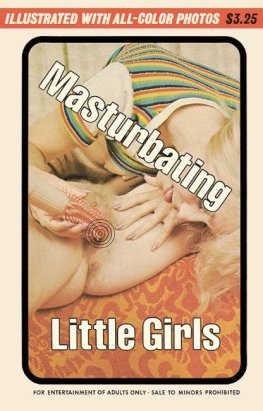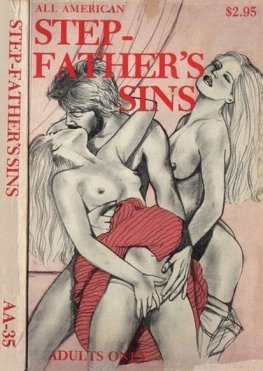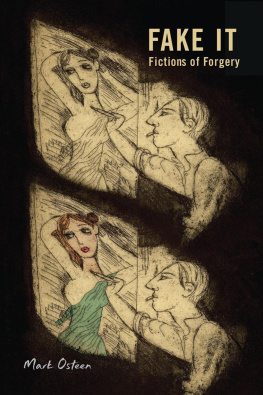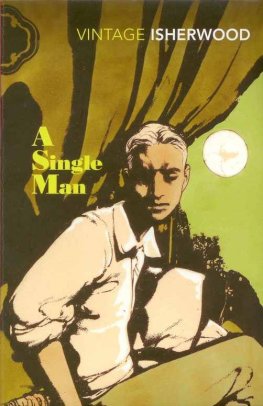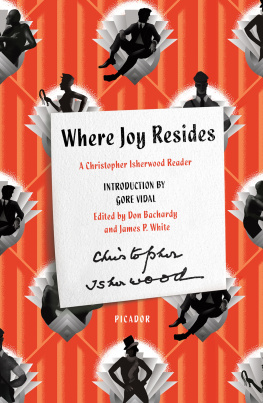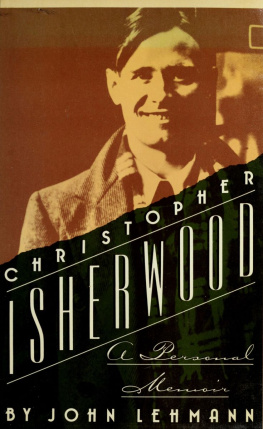Unknown - Isherwood, Christopher (The Berlin Stories - The Last of Mr Norris - Goodbye to Berlin) (TXT)
Here you can read online Unknown - Isherwood, Christopher (The Berlin Stories - The Last of Mr Norris - Goodbye to Berlin) (TXT) full text of the book (entire story) in english for free. Download pdf and epub, get meaning, cover and reviews about this ebook. genre: History. Description of the work, (preface) as well as reviews are available. Best literature library LitArk.com created for fans of good reading and offers a wide selection of genres:
Romance novel
Science fiction
Adventure
Detective
Science
History
Home and family
Prose
Art
Politics
Computer
Non-fiction
Religion
Business
Children
Humor
Choose a favorite category and find really read worthwhile books. Enjoy immersion in the world of imagination, feel the emotions of the characters or learn something new for yourself, make an fascinating discovery.

Isherwood, Christopher (The Berlin Stories - The Last of Mr Norris - Goodbye to Berlin) (TXT): summary, description and annotation
We offer to read an annotation, description, summary or preface (depends on what the author of the book "Isherwood, Christopher (The Berlin Stories - The Last of Mr Norris - Goodbye to Berlin) (TXT)" wrote himself). If you haven't found the necessary information about the book — write in the comments, we will try to find it.
Unknown: author's other books
Who wrote Isherwood, Christopher (The Berlin Stories - The Last of Mr Norris - Goodbye to Berlin) (TXT)? Find out the surname, the name of the author of the book and a list of all author's works by series.
Isherwood, Christopher (The Berlin Stories - The Last of Mr Norris - Goodbye to Berlin) (TXT) — read online for free the complete book (whole text) full work
Below is the text of the book, divided by pages. System saving the place of the last page read, allows you to conveniently read the book "Isherwood, Christopher (The Berlin Stories - The Last of Mr Norris - Goodbye to Berlin) (TXT)" online for free, without having to search again every time where you left off. Put a bookmark, and you can go to the page where you finished reading at any time.
Font size:
Interval:
Bookmark:
CHRISTOPHER
ISHERWOOD
THE BERLIN STORIES
THE LAST OF MR. NORRIS GOODBYE TO BERLIN
WITH A PREFACE BY THE AUTHOR
A New Directions Paperbook
COPYRIGHT 1935 BY CHRISTOPHER ISHERWOOD. COPYRIGHT 1945, 1954 BY NEW DIRECTIONS. LIBRARY OF CONGRESS CATALOG CARD NUMBER: 55-2508. FIRST PUBLISHED AS NEW DIRECTIONS PAPER-BOOK 134 IN 1963. THE COVER PHOTOGRAPH BY DOLORES GUD7.JN. A SCENE FROM THE LIVING THEATRES 1960 PRODUCTION OF
bertolt brechts In the Jungle of Cities, appears by courtesy
OF THEATRE ARTS MAGAZINE. MANUFACTURED IN THE UNITED STATES OF AMERICA. NEW DIRECTIONS BOOKS ARE PUBLISHED FOR JAMES LAUGHLIN BY NEW DIRECTIONS PUBLISHING CORPORATION, 333 SIXTH AVENUE, NEW YORK 10014.
SECOND PRINTING
ABOUT THIS BOOK
From 1929 to 1933,1 lived almost continuously in Berlin, with only occasional visits to other parts of Germany and to England. Already, during that time, I had made up my mind that I would one day write about the people Id met and the experiences I was having. So I kept a detailed diary, which in due course provided raw material for all my Berlin stories.
My first idea, immediately after leaving Berlin in 1933, was to transform this material into one huge tightly constructed melodramatic novel, in the manner of Balzac. I wanted to call it The Lost. This title, or rather its German equivalent, Die Verlorenen, seemed to me wonderfully ominous. I stretched it to mean not only The Astray and Tne Doomedreferring tragically to the political events in Germany and our epoch but also The Lost in quotation marksreferring satirically to those individuals whom respectable society shuns in horror: an Arthur Norris, a von Pregnitz, a Sally Bowles.
Maybe Balzac himself could have devised a plot-structure which would plausibly contain the mob of characters I wanted to introduce to my readers. The task was quite beyond my powers. What I actually produced was an absurd jumble of subplots and coincidences which defeated me whenever I tried to straighten it out on paper. Thank Goodness I never did write The Lost!
Just the same, all of these characters had grown together, like a nest of Siamese twins, in my head, and I could only separate them by the most delicate operations. There was a morning of acute nervous tension throughout which I paced up and down the roof of an hotel in the Canary Islands, shaping the plot of Mr. Norris and discarding everybody and
everything that didnt belong in it. This was in May, 1934. A few days later, I set to work on the novel, sitting in the garden of a pension at Orotava on Tenerif e. The pension was run by a happy-go-lucky Englishman, who used to laugh at my industry and tell me I ought to go swimming, while I was still young. After all, old boy, I mean to say, will it matter a hundred years from now if you wrote that yarn or not? Relentlessly, at four oclock every afternoon, he would start playing records at full blast through the loudspeaker on the patio, hoping to attract wandering tourists in for a drink. They seldom came, but the jazz tunes always put an end to my days work. On August 12,1 noted in my diary: Finished Mr. Norris. The gramophone keeps repeating a statement about Life with which I do not agree. I remember how I raced through that last chapter with one eye on my watch, determined to get finished before the racket started.
Mr. Norris was published in 1935. In England, the book bore its correct name: Mr. Norris Changes Trains; but the American publisher, William Morrow, found this obscure so I changed it to The Last of Mr. Norris, a title which should be followed by a very faint question mark.
Next I wrote the story of Sally Bowles, and it appeared as a small separate volume in 1937. Three other piecesThe Nowaks, The Landauers and Berlin Diary: Autumn 1930 were published in issues of John Lehmanns New Writing. Finally, the complete Goodbye to Berlin was published in 1939.
Goodbye indeed! During those years that followed, the Berlin Id known seemed as dead as ancient Carthage. But 1945 came at last, and V-E Day. That summer, New Directions was getting ready to republish Mr. Norris and Goodbye to Berlin in one volume, The Berlin Stones. While I was correcting the proofs, a letter, the first in seven years, reached me from Heinz, my closest enemy friend, telling how he had fought in Russia and later been taken prisoner by the Americans. After the fighting was over, the authorities at his POW camp had more or less allowed him, and a number of others,
to run away, and had later forwarded his mail to his home address, marked Escaped! As I read and reread this letter, the feeling began to work through me painfully and joyfully, like blood through a numbed leg, that Berlinor, at any rate, the Berlinersstill existed, after all.
Then, in the summer of 1951, John van Druten decided that he could make a play out of Sally Bowles. His adaptation, I Am a Camera, was written with his usual skilled speed, and was ready for production that fall. When I arrived in New York to sit in on rehearsals, I had first to go to a studio and be photographed, for publicity, with our leading lady, Julie Harris. 1 had never met Miss Harris before. I hadnt even seen her famous performance in The Member of the Wedding.
Now, out of the dressing-room, came a slim sparkling-eyed girl in an absurdly tart-like black satin dress, with a little cap stuck jauntily on her pale flame-colored hair, and a silly naughty giggle. This was Sally Bowles in person. Miss Harris was more essentially Sally Bowles than the Sally of my book, and much more like Sally than the real girl who long ago gave me the idea for my character.
I felt half hypnotized by the strangeness of the situation. This is terribly sad, I said to her. Youve stayed the same age while Ive gotten twenty years older. We exchanged scraps of dialogue from the play, ad-libbed new lines, laughed wildly, hammed and hugged each other, while the photographers camera clicked. I couldnt take my eyes off ner. I was dumbfounded, infatuated. Who was she? What was she? How much was there in her of Miss Harris, how much of van Druten, how much of the girl I used to know in Berlin, how much of myself? It was no longer possible to say. I only knew that she was lovable in a way that no human could ever quite be, since, being a creature of art, she had been created out of pure love.
As I watched those rehearsals, I used to think a good deal sometimes comically, sometimes sentimentallyabout the relation of art to life. In writing Goodbye to Berlin, I de
vii
stroyed a certain portion of my real past. I did this deliberately, because I preferred the simplified, more creditable, more exciting fictitious past which Id created to take its place. Indeed, it had now become hard for me to remember just how things really had happened. I only knew how I would like them to have happenedthat is to say, how I had made them happen in my stories. And so, gradually, the real past had disappeared, along with the real Christopher Isherwood of twenty years ago. Only the Christopher Isherwood of the stories remained.
Id never thought about this situation before, because it had never seemed to have any particular significance. If my past was artificial, at least it had been entirely my own until now. Now John, Julie and the rest of them had suddenly swooped down on it, and carried bits of it away with them for their artistic use. Watching my past being thus reinterpreted, revised and transformed by all these talented people upon the stage, I said to myself: I am no longer an individual. I am a collaboration. I am in the public domain.
After the play had opened successfully on Broadway, I went to England. This was my third visit since the end of the war; and this time, I knew, I must go over to Germany as well. It was a definite obligationbut how I dreaded it! I dreaded meeting the people Id known and facing the fact that there was practically nothing I could do to help them. I dreaded seeing familiar places in ruins. Though my mind was made up, my unconscious still protested: I developed symptoms of duodenal ulcer, and nearly broke my leg on a staircase. Throughout the flight from London, I expected a crash, and was almost disappointed when we landed safe at Tempelhofer Feld in a mild snowstorma psychosomatic snowstorm, obviously, one of my friends commented, later.
Next pageFont size:
Interval:
Bookmark:
Similar books «Isherwood, Christopher (The Berlin Stories - The Last of Mr Norris - Goodbye to Berlin) (TXT)»
Look at similar books to Isherwood, Christopher (The Berlin Stories - The Last of Mr Norris - Goodbye to Berlin) (TXT). We have selected literature similar in name and meaning in the hope of providing readers with more options to find new, interesting, not yet read works.
Discussion, reviews of the book Isherwood, Christopher (The Berlin Stories - The Last of Mr Norris - Goodbye to Berlin) (TXT) and just readers' own opinions. Leave your comments, write what you think about the work, its meaning or the main characters. Specify what exactly you liked and what you didn't like, and why you think so.

